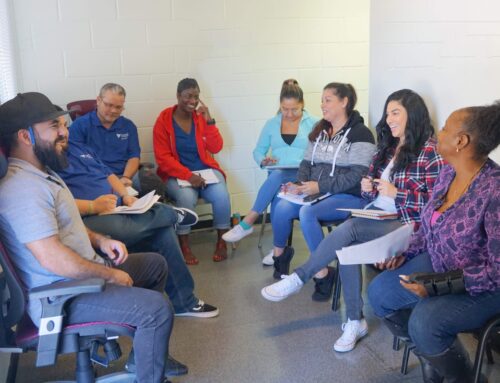In the first five years of life, a child undergoes incredible development. They learn to name colors, tell stories, play with others, and even run without tripping over their own feet—most of the time. To support this development, many parents consider sending their toddlers to preschool.
But is preschool curriculum really worth it? According to ample research, the answer is a resounding yes. Preschool has many profound impacts on a child’s early development that serves them throughout their personal life and academic career.
So what are these amazing benefits of preschool learning? Let’s take a look.
Preschool Benefits
Here are some of the notable benefits of preschool learning:
#1 It Prepares Children for Kindergarten
During preschool, young kids get their first taste of the school experience. While many preschool activities look like “playtime” to adults, in reality, these activities subtly introduce kids to a valuable sense of structure.
Through various preschool learning activities, young children learn how to:
- Follow basic instructions
- Take turns
- Share with others
- Respect their teachers
- Share their teacher’s attention with other students
Preschoolers also get used to being away from their parents for an extended period of time. This alone can be a big transitionary step. By experiencing being away from their parents before kindergarten, children can overcome their fears and take on kindergarten with confidence.
#2 Laying a Foundation For Academic Building Blocks
Early childhood education isn’t about rigorous academics, but it still lays an important educational foundation for a young child. Preschoolers get exposed to many academic building blocks, including their numbers, alphabet, and problem-solving skills.
During preschool, kids can:
- Practice their numbers by counting crackers, balls, or blocks
- Stretch their vocabulary by talking to new people and listening during storytime
- Expand their cognitive skills by asking their teachers questions and solving problems with peers
- Improve their fine motor skills by balancing blocks, drawing, and using scissors
Research shows that this early academic exposure can help children get ahead in grade school and enjoy greater academic success later on.
#3 Preschool Cultivates a Child’s Social Development
Preschool also accelerates a child’s social skills development. Prior to preschool, most young children spend most of their time with their families. Learning how to socialize outside the family is essential for a child’s social growth.
By making friends with their peers, preschoolers can develop new social skills and confidence. During this process, they learn how to:
- Cooperate with others
- Be kind and inclusive
- Express their feelings
- Be respectful of others’ feelings
If a child were to forgo preschool learning, they’d be at a comparative disadvantage with their peers who already went through these important developmental experiences.
#4 Improved Self-Regulatory Skills
Learning how to regulate behavior is hard for young children. They are known for their outbursts and tantrums. However, kids develop self-regulation rapidly during the preschool years, especially when they’re properly supported by their teachers.
In a preschool classroom, children can flex their self-regulation muscles through organized games, structured learning activities, and cooperative play. Many preschoolers are eager to gain their peers’ and teachers’ approval. Because certain behaviors like listening quietly and raising a hand to speak are rewarded in the preschool classroom, children are motivated to follow the rules and exercise self-regulation.
Most notably, research shows that children who go to preschool have better self-regulation skills throughout their life—not just during the preschool years.
#5 Preschool Connects Your Child With Supportive Adults
Young children need constant nurturing and attention. As a parent, providing this level of care 24 hours a day can be a challenge, especially if you have other obligations on your plate.
Fortunately, preschool teachers can share in this responsibility. Preschool educators went into the profession because they love working with young children. Not only will they make your job as a parent a little easier, but they’ll also serve as another adult that your child can trust.
Preschool teachers will also work to expand your child’s development by:
- Answering their questions
- Introducing them to new vocabulary
- Teaching them about new ideas
- Supporting them through social and emotional conflicts
The Powerful Outcomes of Preschool Learning
If you’re still on the fence about the benefits of preschool learning, it may help to look to expert research. These long term child development studies showed that children who attended preschool are:
- More successful academically
- Less likely to repeat a grade
- Less likely to have special needs
- More likely to graduate from high school
- More likely to be a high-earner as an adult
As you can see, sending your children to preschool can set them up for a plethora of positive outcomes for the rest of their lives.
VOASW: High-Quality Preschool Programs
If you want to nurture your child’s social, emotional, and academic development, it’s important to place them in a high-quality preschool program.
For example, the California-based Ballington Academy has a wonderful transitional kindergarten (TK) program. As a free charter school, the Ballington Academy is a place where California students can enjoy hands-on learning, small class sizes, and individualized attention.
See if the Ballington Academy is right for your little one today.
Sources:
The National Academies of Sciences Engineering Medicine. From Neurons to Neighborhoods: The Science of Early Childhood Development.
U.S. National Library of Medicine. The Development of Self-Regulation across Early Childhood.
https://www.ncbi.nlm.nih.gov/pmc/articles/PMC5123795/
PubMed.gov. Impacts of Early Childhood Education on Medium- and Long-Term Educational Outcomes.


